In this blog, we will explore what a CMS is, how it works, popular CMS examples, the best CMS platform, and how to build a website using a CMS.
What is a Content Management System (CMS)?
A Content Management System (CMS) is a software application that facilitates the creation, modification, and organization of digital content, typically for websites, without requiring extensive technical knowledge. In simpler terms, a CMS empowers users to manage website content effectively, including text, images, videos, and other multimedia elements, without the need for complex coding.
How does a Content Management System work?
A CMS consists of two main components: a back-end (administrator interface) and a front-end (user interface). Let's take a closer look at how they work together:
- Back-end (Administrator Interface):
The back-end of a CMS is where administrators and content creators manage and organize the website's content. Key features typically include:
- Content Creation: Users can easily create and edit web pages using a user-friendly editor, similar to working with a word processor.
- Content Organization: The CMS allows content to be categorized, tagged, and organized into different sections or pages, making it easy to maintain a structured website.
- User Management: Administrators can define user roles, permissions, and access levels, enabling multiple users to collaborate on content creation and management.
- Media Management: The CMS provides a central repository for storing and managing media files, such as images and videos, making them easily accessible for content creation.
- SEO and Metadata: It often includes tools to optimize content for search engines by allowing administrators to add metadata, such as titles, descriptions, and keywords.
- Front-end (User Interface):
The front-end of a CMS is what website visitors see and interact with. It presents the content in a visually appealing and user-friendly manner. The CMS takes care of rendering the dynamic web pages based on the content stored in the back-end. It ensures consistency across the website by applying predefined templates, themes, and layouts.
Popular Content Management Systems:
Several CMS platforms are widely used, each offering unique features and benefits. Here are a few popular examples:
WordPress:
WordPress is a highly popular and versatile content management system (CMS) that has gained widespread acclaim for its exceptional blogging capabilities, e-commerce functionality through WooCommerce, and its ability to create stunning and dynamic websites. WordPress has evolved into a powerful platform, trusted by millions of individuals, businesses, and organizations worldwide.
One of the key strengths of WordPress lies in its reputation as a leading choice for bloggers. With its user-friendly interface and extensive range of customizable themes and plugins, WordPress offers a seamless experience for creating, managing, and publishing blog content. Whether you are a seasoned blogger or just starting out, WordPress provides the essential tools and features to help you express your thoughts, connect with your audience, and establish your online presence.
Additionally, WordPress has become increasingly popular for building online shops, thanks to its integration with WooCommerce. This robust e-commerce plugin enables users to effortlessly transform their WordPress website into a fully functional online store. With WooCommerce, you can showcase and sell products, manage inventory, process payments securely, and customize the shopping experience to align with your brand identity. Its flexibility and extensive range of extensions make WooCommerce a reliable choice for businesses of all sizes, from small boutiques to large-scale enterprises.
Furthermore, WordPress offers an exceptional platform for creating a wide range of websites beyond just blogs and online shops. Its versatility allows you to build professional websites for businesses, portfolios, online communities, news platforms, educational institutions, and more. With its extensive library of themes and plugins, you can personalize your website's appearance and enhance its functionality to meet your specific needs. WordPress also provides a responsive design, ensuring that your website looks great and performs seamlessly on various devices, including desktops, tablets, and smartphones.
Whether you are a blogger, an e-commerce entrepreneur, or a website creator, WordPress offers an exceptional platform to bring your ideas to life. Its versatility, reliability, and widespread usage make it the go-to choice for individuals and businesses looking to establish a strong online presence and deliver engaging and dynamic content to their audience.
Website design agencies that offer WordPress Website Design:
Identity Web Design: https://www.identitywebdesign.com/joomla
Red Revolution: https://www.redevolution.com
Weblinx: https://www.weblinxinc.com
Opace: https://www.opace.co.uk
Joomla:
Joomla is a widely used open-source content management system (CMS) that allows users to build and manage dynamic websites and powerful online applications. It is written in PHP and utilizes object-oriented programming (OOP) techniques, making it highly flexible and extendable.
With Joomla, individuals and organizations can create websites ranging from simple personal blogs to complex e-commerce platforms, community forums, corporate websites, and more. It provides a user-friendly interface that enables users with little technical expertise to manage and update their websites easily.
One of the notable features of Joomla is its extensibility. It offers a vast collection of extensions, including components, modules, plugins, and templates, which enhance the functionality and appearance of Joomla-based websites. These extensions are developed by a vibrant community of Joomla enthusiasts and developers, providing users with a wide range of options to customize their websites according to their specific needs.
Joomla follows a modular architecture, where websites are built using a combination of templates, which control the visual presentation, and extensions, which add specific features and functionality. This modular approach allows for easy customization and scalability, making Joomla suitable for websites of all sizes.
In terms of security, Joomla has a robust framework that prioritizes the protection of websites against potential vulnerabilities and attacks. The core development team regularly releases updates and patches to address security issues and improve the overall stability of the system. Additionally, there are numerous security extensions available for Joomla, enabling users to further enhance the security of their websites.
Joomla also emphasizes multilingual support, making it an ideal choice for websites targeting an international audience. It provides built-in language management features, allowing users to create websites with content available in multiple languages.
Furthermore, Joomla has an active and supportive community that provides documentation, tutorials, forums, and other resources to assist users in their Joomla journey. The community-driven nature of Joomla fosters collaboration and knowledge sharing among its users, making it easier for newcomers to get started and experienced users to contribute to the project.
Overall, Joomla is a powerful CMS that offers a wide range of features, flexibility, and customization options. Its user-friendly interface, extensibility, security measures, multilingual support, and active community make it a popular choice for individuals, businesses, and organizations looking to create and manage websites efficiently.
Website design agencies that offer Joomla Website Design:
Identity Web Design: https://www.identitywebdesign.com/joomla
Red Revolution: https://www.redevolution.com
Weblinx: https://www.weblinxinc.com
Opace: https://www.opace.co.uk
Drupal:
Drupal is a powerful and flexible content management system (CMS) that empowers individuals and organizations to create and manage a wide range of websites and digital experiences. It is an open-source platform, meaning it is developed and maintained by a community of contributors who continually enhance its features and security.
One of Drupal's key strengths lies in its ability to handle complex and highly customizable websites. It provides a robust framework that allows developers to create unique and tailored solutions for various requirements. Drupal offers a modular architecture, enabling users to extend its core functionality by adding modules, themes, and distributions.
Content creation and management are at the core of Drupal's capabilities. It offers a user-friendly administrative interface that allows content editors to create, publish, and organize content easily. Drupal's content model is flexible, supporting various content types such as articles, blog posts, pages, events, and more. It also provides advanced content authoring tools, including version control, content moderation, and workflow management, allowing teams to collaborate effectively.
Drupal is highly scalable and can handle websites of any size and complexity. Its performance and scalability are well-suited for large enterprise websites and high-traffic platforms. With Drupal's built-in caching mechanisms, database optimization, and scalability features, it can efficiently handle millions of page views and serve content to a global audience.
Another notable feature of Drupal is its robust community and ecosystem. The Drupal community is vibrant and active, comprising developers, designers, site builders, and enthusiasts who contribute to its growth and improvement. Thousands of contributed modules and themes are available, extending Drupal's functionality and allowing users to customize their websites according to their specific needs.
Drupal is also known for its strong focus on security. The community maintains a rigorous security team that regularly audits and releases updates to address any vulnerabilities. The platform has a track record of handling security issues promptly and responsibly, making it a reliable choice for websites that prioritize data protection and privacy.
Furthermore, Drupal integrates well with other systems and technologies. It provides extensive APIs and supports various protocols, enabling seamless integration with third-party applications, services, and data sources. This flexibility makes Drupal an excellent choice for building integrated and interconnected digital experiences.
In summary, Drupal is a flexible and robust content management system that empowers individuals and organizations to create and manage sophisticated websites and digital experiences. With its modular architecture, scalability, security focus, and vibrant community, Drupal continues to be a popular choice for projects ranging from personal blogs to large-scale enterprise platforms.
Website design agencies that offer Drupal Website Design:
Mediacurrent: https://www.mediacurrent.com
Lullabot: https://www.lullabot.com
Zivtech: https://www.zivtech.com
Elevated Third: https://www.elevatedthird.com
Chromatic: https://chromatichq.com
Paces Creative: https://paces.co.za
Cheeky Monkey Media: https://cheekymonkeymedia.ca
Shopify:
Shopify is an all-in-one e-commerce platform that allows individuals and businesses to create, manage, and grow their online stores. It provides a comprehensive set of tools and features to help entrepreneurs establish a professional and successful online presence without requiring extensive technical knowledge or coding skills.
With Shopify, users can easily set up their online store by choosing from a wide range of customizable templates and themes. These templates are designed to be visually appealing and optimized for mobile devices, ensuring a seamless shopping experience for customers on various devices.
One of the key strengths of Shopify is its user-friendly interface, which makes it easy for store owners to manage their products, inventory, and orders. The platform offers a simple yet powerful dashboard that allows users to add products, set pricing, track inventory levels, and process orders efficiently. Additionally, Shopify provides a secure and reliable payment gateway, enabling businesses to accept various payment methods, including credit cards, PayPal, and other popular options.
Furthermore, Shopify offers extensive integration options with third-party applications and services. This allows users to enhance their stores with additional features such as email marketing, social media integration, customer support, analytics, and more. Shopify also provides a built-in blogging platform, enabling users to create content and engage with their audience effectively.
The platform caters to businesses of all sizes, from small startups to large enterprises. It offers scalable pricing plans to accommodate different business needs and budgets. Moreover, Shopify provides reliable and secure hosting, ensuring that online stores remain accessible and protected from potential threats.
In terms of marketing and SEO, Shopify offers built-in tools to optimize online stores for search engines and increase visibility. It supports essential features like customizable meta tags, sitemaps, and automatic generation of canonical tags, helping businesses improve their rankings on search engine result pages.
Shopify's ecosystem extends beyond its core platform, as it has an extensive marketplace called the Shopify App Store. This marketplace provides a wide range of free and paid apps and plugins that further extend the functionality of the platform. Users can find applications for accounting, customer support, marketing automation, inventory management, and more, allowing them to customize their stores according to their specific requirements.
In summary, Shopify is a robust and user-friendly e-commerce platform that empowers entrepreneurs and businesses to create and manage online stores effectively. With its intuitive interface, extensive features, and customization options, Shopify has become one of the leading choices for individuals and businesses seeking to establish a successful online presence and grow their e-commerce ventures.
Website design agencies that offer Shopify Ecommerce Website Design:
Blackbelt Commerce - https://www.blackbeltcommerce.com
Paces Creative - https://paces.co.za
Hawke Media - https://hawkemedia.com
Electric Eye - https://electriceye.io
Eastside Co - https://eastsideco.com
Coalition Technologies - https://coalitiontechnologies.com
Wix:
Wix is a leading cloud-based website development platform that empowers individuals and businesses to create professional and visually stunning websites without the need for extensive coding knowledge.
One of the key features of Wix is its intuitive drag-and-drop editor, which allows users to easily customize their websites by simply dragging and dropping elements onto the page. With a vast collection of templates and a wide range of design options, Wix offers users the flexibility to create unique and personalized websites for various purposes, such as business websites, online stores, portfolios, blogs, and more.
Wix provides a comprehensive suite of tools and features to enhance website functionality and user experience. Users can add contact forms, social media integration, e-commerce capabilities, and multimedia elements such as videos and image galleries. The platform also offers advanced features like SEO optimization, mobile optimization, and analytics, enabling users to improve their website's visibility and track its performance.
Furthermore, Wix offers reliable and secure hosting services, ensuring that websites built on the platform are fast, responsive, and accessible to visitors from around the globe. Wix handles all technical aspects, including server maintenance, security updates, and backups, allowing users to focus on creating and managing their websites.
For users who require additional functionality beyond the built-in features, Wix provides an App Market where users can choose from a wide selection of third-party applications to integrate into their websites. These apps cover various needs, such as email marketing, customer support, analytics, and more, further extending the capabilities of Wix websites.
Wix offers both free and premium plans to cater to different user requirements. The free plan allows users to create and publish websites with basic features, while premium plans unlock additional benefits such as a custom domain, more storage space, ad removal, and advanced features. The pricing structure is flexible, and users can choose between monthly or annual subscriptions, depending on their preferences.
Overall, Wix provides a user-friendly and powerful platform for creating visually appealing websites with ease. Whether you're an individual, small business owner, or a creative professional, Wix offers a comprehensive set of tools and resources to bring your online presence to life.
Website design agencies that offer Wix Website Design:
99 Robots - https://www.99robots.com
Websites Depot - https://websitedepot.com
Lounge Lizard - https://www.loungelizard.com
Wix Patriots - https://www.wixpatriots.com
Wix Web Expert - https://www.wixwebexpert.com
The Best CMS Platform:
The choice of the best CMS platform depends on your specific needs and requirements. WordPress is often considered the best CMS for its ease of use, extensive community support, and a vast library of plugins and themes. However, it's important to evaluate other CMS platforms based on factors such as scalability, customization options, security, and integration capabilities.
Building a Website with a Content Management System:
Building a website with a CMS can be a straightforward process. Here are the general steps to follow:
- Choose a CMS: Select a CMS that aligns with your goals, expertise, and website requirements. Consider factors such as scalability, customization options, and community support.
- Acquire a Domain and Hosting: Register a domain name (e.g., www.yourwebsite.com) and acquire hosting services to make your website accessible on the internet. Use a reliable and fast hosting company geared specifically for CMS platforms like Hostmania. Some good hosting companies to use are:
- Hostmania: https://hostmania.co.za
- GoDaddy: https://goddaddy.com
- Hetzner: https://hetzner.com
- Install the CMS: Follow the CMS's installation instructions provided by the platform or your hosting provider. Many hosting providers offer one-click installations for popular CMS platforms.
- Customize Your Website: Select a suitable theme or template that aligns with your website's purpose and customize it to fit your branding. Customize the layout, colors, fonts, and add your logo.
- Add and Manage Content: Use the CMS's back-end interface to create and manage your website's content. Create pages, write articles, upload images, and organize your content into relevant categories.
- Extend Functionality: Explore plugins, extensions, or modules provided by the CMS community to enhance your website's functionality. Add features like contact forms, social media integration, or e-commerce capabilities.
- Test and Launch: Preview your website, check for any errors or inconsistencies, and test its responsiveness across different devices. Once satisfied, publish your website for the world to see.
Conclusion:
Content Management Systems provide an accessible and efficient way to build and manage dynamic websites without extensive technical knowledge. With various CMS platforms available, you can choose the one that best suits your needs. By following the steps outlined above, you'll be on your way to creating an engaging and professional website using a content management system.
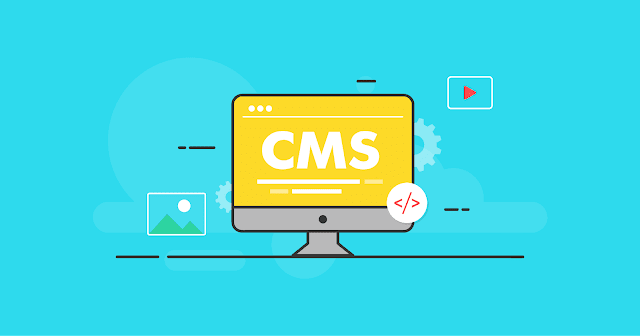
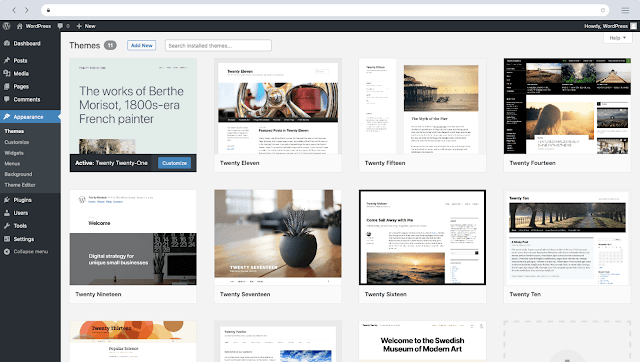
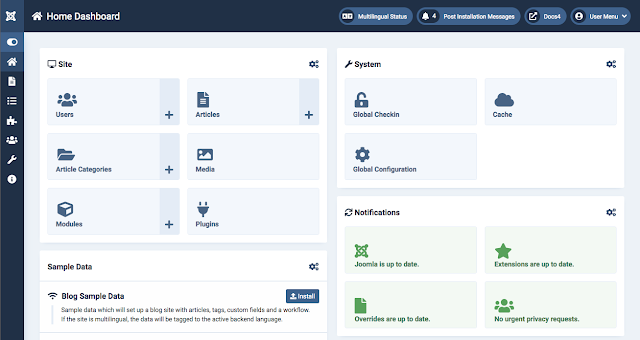
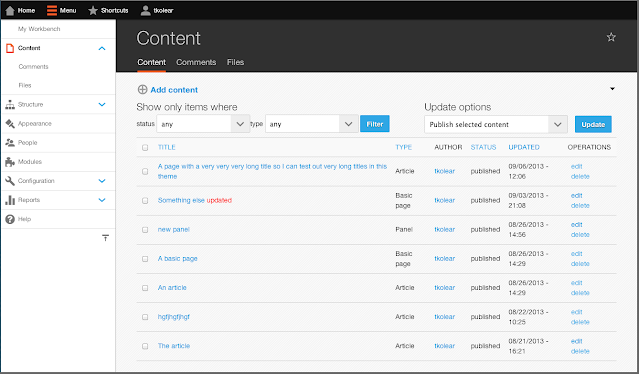
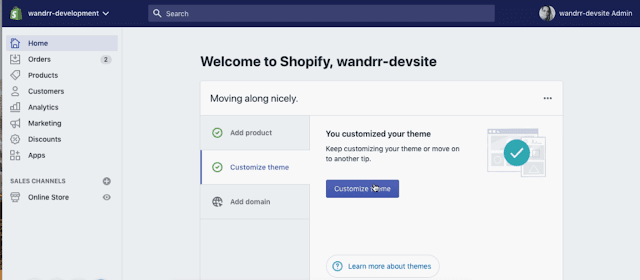

Comments
Post a Comment